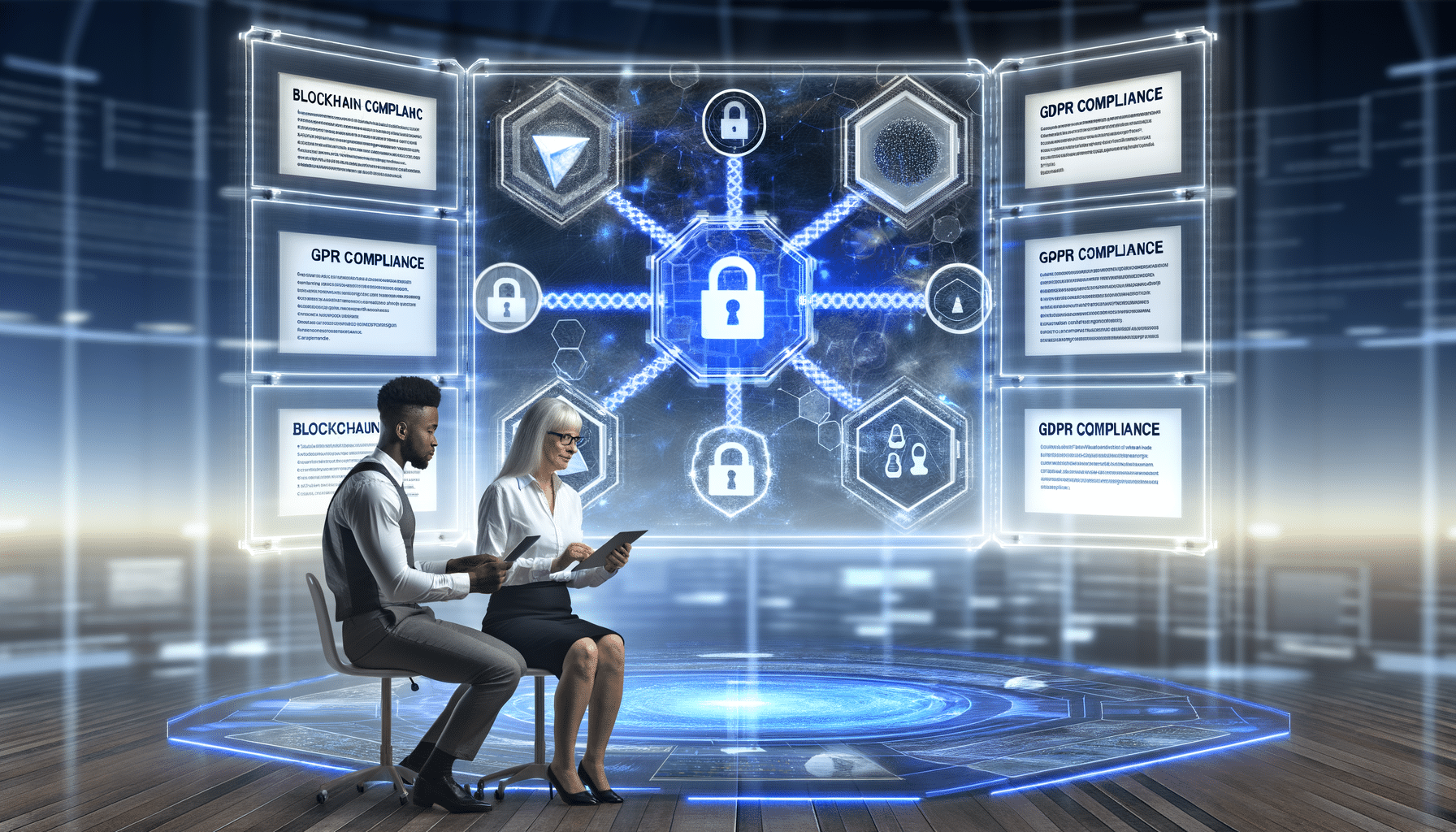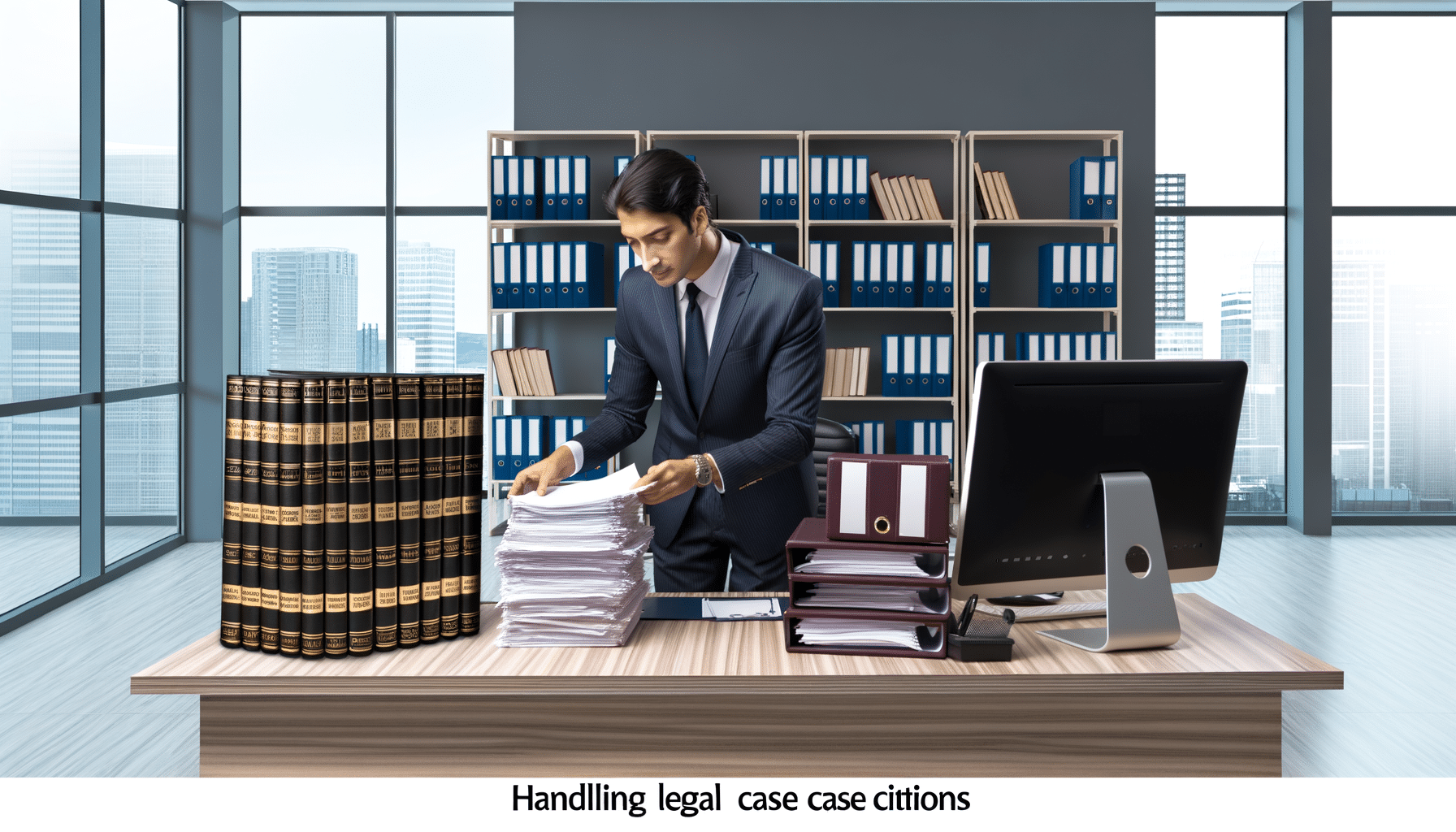- AI in Legal
- September 20, 2022
The Intersection of Blockchain and GDPR Compliance

Introduction
Navigating the complex landscape of GDPR compliance is a considerable challenge for many businesses. As I ventured into the world of record management with RecordsKeeper.AI, I realized that blockchain technology could play a pivotal role in addressing these challenges, offering a new level of efficiency and security. Today, I’m excited to unpack the intersection of blockchain technology and GDPR compliance, sharing how this powerful combination can transform record management for businesses.
The Compliance Conundrum
For years, companies have grappled with ensuring compliance with the General Data Protection Regulation (GDPR). This regulation, aimed at protecting the personal data of EU citizens, enforces strict rules on data handling and storage. Non-compliance doesn’t just result in hefty fines but can also damage a company’s reputation—a risk few can afford.
Blockchain presents a disruptive avenue for compliance, offering unique features that align closely with GDPR’s principles. Let me share how this technology is revolutionizing the way we approach compliance.
Understanding Blockchain’s Role
Blockchain’s distinctive attributes—its decentralization, immutability, and transparency—address several core compliance requirements:
- Data Security: Blockchain’s advanced cryptographic measures ensure that data stored in its ledgers is secure from unauthorized access. As a permanent and immutable record, it prevents tampering and unauthorized modifications.
- Data Integrity: With blockchain, every data entry is time-stamped and logged across a network of nodes, providing a clear audit trail. This ensures data integrity and authenticity, aligning perfectly with GDPR’s requirements for accurate record-keeping.
- Transparency and Auditability: Blockchain allows for clear and straightforward auditing processes. Each transaction’s transparency simplifies GDPR’s need for traceable and verifiable data processing activities.
Addressing GDPR’s “Right to be Forgotten”
One of the misconceptions about blockchain is its incompatibility with the GDPR’s “right to be forgotten.” However, innovative solutions have emerged that reconcile this requirement with blockchain’s inherent immutability.
In practice, businesses can use blockchain to store hashed, pseudonymous data rather than plain personal data. Off-chain data structures allow for the deletion or modification of personal data while maintaining an audit trail on the blockchain. This architecture supports compliance with GDPR while benefiting from blockchain’s strengths.
Real-World Application: Simplifying Compliance
In my journey with RecordsKeeper.AI, employing blockchain technology has proved transformative for streamlining compliance processes. Let’s consider an example scenario:
Imagine a health insurance company needs to comply with GDPR while managing patient records. Any data changes or accesses are logged on the blockchain, ensuring accurate, secure record-keeping and full traceability. By integrating AI, RecordsKeeper.AI automates the categorization and retrieval of records, reducing human error and speeding up the compliance process.
Blockchain complements the records management lifecycle, from acquisition and storage to retrieval and disposal, making the compliance journey smoother and more efficient.
Integrating Blockchain for Enhanced Compliance
To effectively integrate blockchain into your compliance strategy, consider the following action points:
- Assess current data practices and identify GDPR-compliance gaps.
- Begin with a clear pilot project to understand blockchain’s impact and uncover potential glitches.
- Engage stakeholders, including IT teams and compliance officers, for a collaborative approach.
- Leverage platforms like RecordsKeeper.AI to facilitate seamless integration and operation.
By adopting blockchain technology, organizations not only ensure GDPR compliance but also secure a more robust, efficient record management practice.
Conclusion
The marriage of blockchain technology with GDPR compliance is a revolutionary step forward in record management. As I continue to develop and refine solutions at RecordsKeeper.AI, I am convinced that blockchain will remain fundamental in driving secure, efficient, and compliant data management practices.
I encourage you to explore how these technologies can transform your compliance journey. Stay connected for more insights, and let’s continue to innovate for a future of trustworthy record management.
Toshendra Sharma is the visionary founder and CEO of RecordsKeeper.AI, spearheading the fusion of AI and blockchain to redefine enterprise record management. With a groundbreaking approach to solving complex business challenges, Toshendra combines deep expertise in blockchain and artificial intelligence with an acute understanding of enterprise compliance and security needs.
Related Posts


Archives
- December 2024
- November 2024
- October 2024
- September 2024
- August 2024
- July 2024
- June 2024
- May 2024
- April 2024
- March 2024
- February 2024
- January 2024
- December 2023
- November 2023
- October 2023
- September 2023
- August 2023
- July 2023
- June 2023
- May 2023
- April 2023
- March 2023
- February 2023
- January 2023
- December 2022
- November 2022
- October 2022
- September 2022
- March 2019
Want to get more content like this?
Signup to directly get this type of content to your inbox!!
Latest Post
Organizing External Auditor Access
- December 22, 2024
Document Control in Manufacturing Plants
- December 21, 2024
Handling Rush Financial Report Requests
- December 20, 2024
Managing Record Access After Staff Changes
- December 19, 2024





